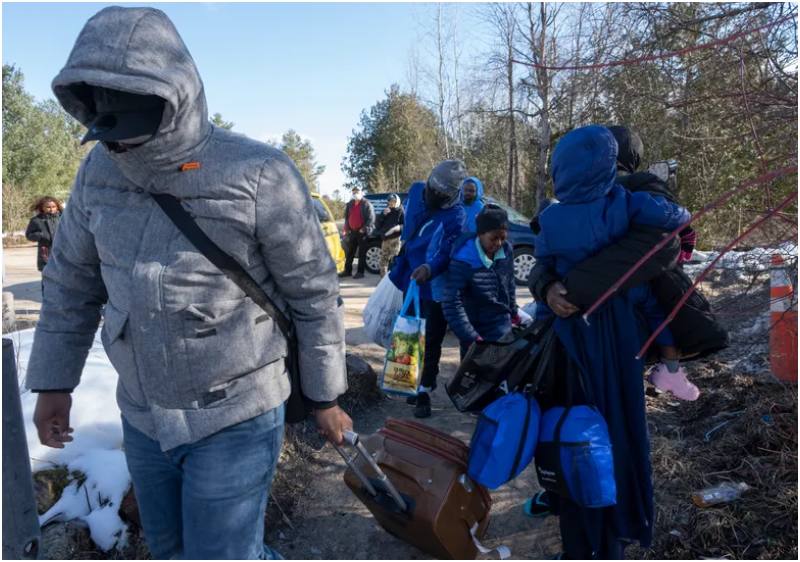The U.S. Department of Homeland Security (DHS) is introducing new border security policies that significantly impact the time asylum seekers have to consult with legal counsel when crossing the U.S.-Canada border.
According to internal documents obtained by CBS News, these changes are set to take effect on August 14, 2024.
Under the updated policies, the time allotted for migrants to consult with their attorneys before official processing is being reduced from a minimum of 24 hours to just 4 hours.
Additionally, asylum seekers must now have all required documentation prepared for screening to determine whether they are subject to the 2002 Safe Third Country Agreement (STCA) between Canada and the United States. Previously, individuals exempt from the STCA could delay screening to gather supporting documentation.
Background on the Safe Third Country Agreement (STCA)
The STCA governs the handling of refugee applications between Canada and the U.S., stipulating that asylum seekers must apply for refugee status in the first country they enter.
In 2023, the agreement was expanded to cover both official and unofficial border crossings. This change came in response to a surge in irregular crossings into Canada following the closure of Roxham Road, a well-known entry point in Quebec.
The constitutionality of the STCA was challenged before the Supreme Court of Canada (SCC) in 2023. Plaintiffs argued that the agreement violated their rights under the Canadian Charter of Rights and Freedoms, particularly in cases where asylum seekers were returned to the U.S. and detained.
While the SCC ruled that the plaintiffs’ section 7 Charter rights were not violated, it remitted the section 15 claim—related to equality rights—back to the Federal Court for further consideration.
DHS Justifies Policy Changes
DHS stated that its review of the STCA’s implementation concluded that the expedited process would not impede noncitizens’ ability to receive a fair asylum determination.
Despite concerns about limiting access to legal counsel, DHS maintains that these policy adjustments are designed to streamline border procedures while preserving procedural fairness.
As of now, DHS has not published the internal documents nor issued an official statement on its website regarding these policy updates.
Implications for Asylum Seekers and Legal Advocates
The new policies are likely to draw criticism from immigration and civil rights advocates who argue that reduced access to legal counsel may undermine the ability of asylum seekers to adequately present their cases.
The expedited process may also affect those attempting to gather documents required to prove their exemptions under the STCA.
With the changes set to take effect imminently, legal professionals and advocacy groups will closely monitor how these policies impact asylum seekers at the U.S.-Canada border and whether additional legal challenges arise.

